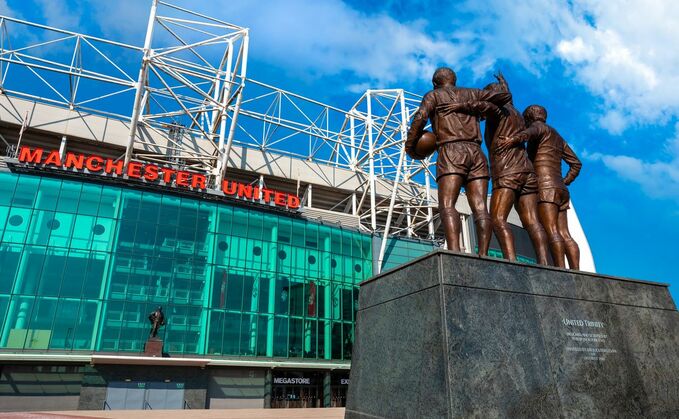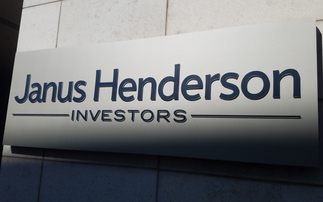
The club’s stock price has steadily declined in the last few years
Manchester United has been rocked by news the club could potentially see a sale, with the share price shooting up 70% after rumours began.
"Speculation saw shares shoot up like a rocket and confirmation from the club prompted another lift off, but they dropped back a little as investors mull who will take over the club," said Susannah Streeter, senior investment and markets analyst for Hargreaves Lansdown.
Victoria Scholar, head of investment at interactive investor, said that investors were "cheering" at the news, hoping for a "beginning of a new era for the club after a disappointing performance over the last few years".
The club's majority owners, the Glazer family, has reportedly begun exploring a sale, as Josh Mahony, senior market analyst at IG Group, explained, with the club hoping to take advantage of valuations "borne out of the recent Chelsea takeover".
Streeter said it was clear that the Glazers "mean business" as they have appointed the Raine Group, who brokered the $3.2bn sale of Chelsea earlier this year, as the club's exclusive financial advisers.
Steady decline
The club's stock price has steadily declined in the last few years, hovering between $15 and $20 until the pandemic, now falling as low as $10.73 in July this year. However, the recent news of a potential sale saw a spike in stock price up to $22.73, according to data from Morningstar.
Although Sanford DeLand Asset Management does not invest in Manchester United in any of its funds, CIO of the firm, Keith Ashworth-Lord, said in his personal view the "last straw" in the decision to push for a sale had been the attempted creation of a European Super League.
The Super League, which was created in April last year, would have seen the top 20 European teams competing, but it faced widespread backlash from fans and ultimately all six English clubs, including Manchester United, withdrew from the plan.
Ashworth-Lord said of the Super League: "This concept is dead in the water and the revenues associated with a European breakaway league now just a pipe dream."
Thomas Banks, portfolio manager of the Federated Hermes International Small-Mid Company fund, argued that "underachievement on the pitch combined with rising expenditures on players" had been the main driver in the stock decline, compounded with the effects of the pandemic.
The stock was the top holding in Banks' fund as of 30 September, representing 1.8% of the portfolio.
Revenues for the club peaked in 2018 and it has moved from a profit to reporting £115m in losses.
Banks said that missing the "highly lucrative" UEFA Champions League in three of the last five years, domestic broadcast TV rights plateauing in revenue and the expiry of the team's £64m-a-year shirt sponsorship deal from Chevrolet were all identified as secondary factors for the steady decline in revenue.
Upcoming sale
While a sale might be supported by the Glazers and potential buyers, it seems clear that the price will be a sticking point in negotiations.
Hargreaves Lansdown's Streeter warned the Glazers have already said the sale "would come at a hefty price, which might see some of the initial interest slip away".
Scholar said that although the club was recently valued at £3.8bn and the market cap sits around £2.9bn, the club has the potential "to sell for much more than that".
Josh Mahony, senior market analyst at IG Group, noted that rumours indicated a sale price of £7-9bn had been reported, though he described it as "a stretch" given Chelsea was sold for £4.3bn.
Mahoney added: "The pool of potential buyers will be small, but the Chelsea deal does highlight the fact that there are plenty of potential suitors when such a rare opportunity does arise."
Ashworth-Lord similarly thought reported target prices were too high, stating a "more realistic valuation" would be £4bn.
He warned that "the problem will be valuation" in the sale, as the club is in "dire need of refurbishment," which he estimated would cost about £1.5bn.
Streeter agreed, describing the cost of revamping the Old Trafford stadium as "pretty onerous".
Banks argued that a sale of the club "would be positive for shareholders", considering how much lower the market cap was compared to its recent valuations. He argued the valuation of £3.75bn seemed "closer to fair value".
If the deal fails to materialise, all experts agreed that the stock would fall sharply.
Banks speculated that if the sale failed to materialise, the stock would likely fall back "to its prior $12 to $14 range", while Ashworth-Lord said it could fall lower than where it had been.
Banks also warned that there was "always a risk a deal falls through" due to problems around the asking price or unforeseen events in markets.
The manager also said that there would be "a significant rotation in the club's shareholder base" as investors who had been hoping for a sale left..















